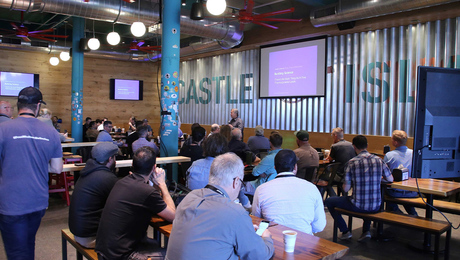
For most employees, a fat, reliable paycheck provides enough incentive to work well and to represent the company wholeheartedly. But fat paychecks can be rough on the employer. Although the economy has improved, most builders still don’t have a penny to spare.
I know the stress of payroll, having met this obligation for about 20 years. It’s the only thing I don’t miss about running a company. And no matter how well you pay employees, most believe they deserve at least a little more money, and they expect steady raises over time. Meanwhile, the building business becomes more competitive, costs swell, margins shrink, and the proverbial pencil sharpening involved in every estimate leaves no room for added labor costs.
How do you build loyalty among your employees and meet their need for financial progress?
Just as clients have needs and wants that must be identified before you design a suitable project, your employees have needs and aspirations that offer clues for creating nonmonetary incentives that can be more valuable to them than a raise.
I have found that employees desire a position that provides flexible scheduling, improves their sense of self-worth, or lines up with career goals that go far beyond working for you.
Flexible work schedule. One employee at my company had a two-hour conflict every day involving child care. Her kids got home from school at three, but no one was home to supervise. We agreed to schedule her workday from eight to two, and then after two hours off, from four to six. Our office closed at five, but this quiet hour provided time for her to complete special projects, keep files in order, and maintain a happy home life. She could find no other employer offering the same level of flexibility, although she was very efficient and could certainly have found better pay elsewhere.
Skills training. Another employee, who had always worked with his hands, wanted the opportunity to become a supervisor. While he lacked certain organizational skills and did not handle computer work well, he was very charismatic and well liked–a key ingredient in leadership, especially for someone wanting to rise above his peers. I promoted him first to assistant superintendent, and then to full superintendent. Instead of a raise, we paid to send him to project-management courses, to attend the National Association of Home Builders show, and to take a number of management classes. We also gave him a laptop with one-on-one instruction.
He never became a computer whiz, but he did become an excellent superintendent who was able to motivate his peers and to deliver jobs on time and under budget. He appreciated the chance to take this major step in his career, which boosted his self-esteem, made his mother proud, and allowed him to continue working in the business long past the time his back and knees would have forced him to quit.
Business opportunity. Many other employees kept a little, not-so-dirty secret that I would pry out slowly and gently. They wanted to become my competitors! I have heard other employers complain about training future competitors. But this was also my little secret when I worked for a boss, so why would I resent it my employees? Instead, I celebrated ambition and made a pact with aspiring entrepreneurs that their time with me would be a steppingstone to becoming their own boss.
To help these employees on the path to self-employment, I provided training and support so they could obtain the required licenses, and I bought tools that employees could then purchase from me at half price when they struck out on their own. These were always my best employees because they had motivation, an excellent work ethic, and a hunger for knowledge. One went on to become a master plumber, with a van and full set of tools; another became Realtor who sold our homes; and the most successful one became a competing homebuilder.
These three approaches–scheduling flexibility, skill development, and entrepreneurial support–allowed me to work for years with a loyal employee base. When times got tough, these employees not only understood; they pitched in and helped pull the company through. Despite their stagnant salaries (while I drew none at all), they grew professionally and lived fuller lives than they would have if merely another two or three dollars an hour had been added to their pay.
Many of the incentives I provided cost money. But enrolling employees in community college, providing scheduling flexibility to attend classes, and helping pay for licensing and tools as they developed fledgling businesses cost a lot less than payroll after factoring in labor burden and ancillary costs. I also received state grants for employee training (available from most states), although I have never heard of a state grant for giving raises.
There are many things a homebuilder can provide employees that don’t involve higher wages but that mean just as much or even more. Get to know your employees, and think creatively about how you can help them realize their goals and aspirations.
Fine Homebuilding Recommended Products
Fine Homebuilding receives a commission for items purchased through links on this site, including Amazon Associates and other affiliate advertising programs.

8067 All-Weather Flashing Tape

Handy Heat Gun

Reliable Crimp Connectors




























